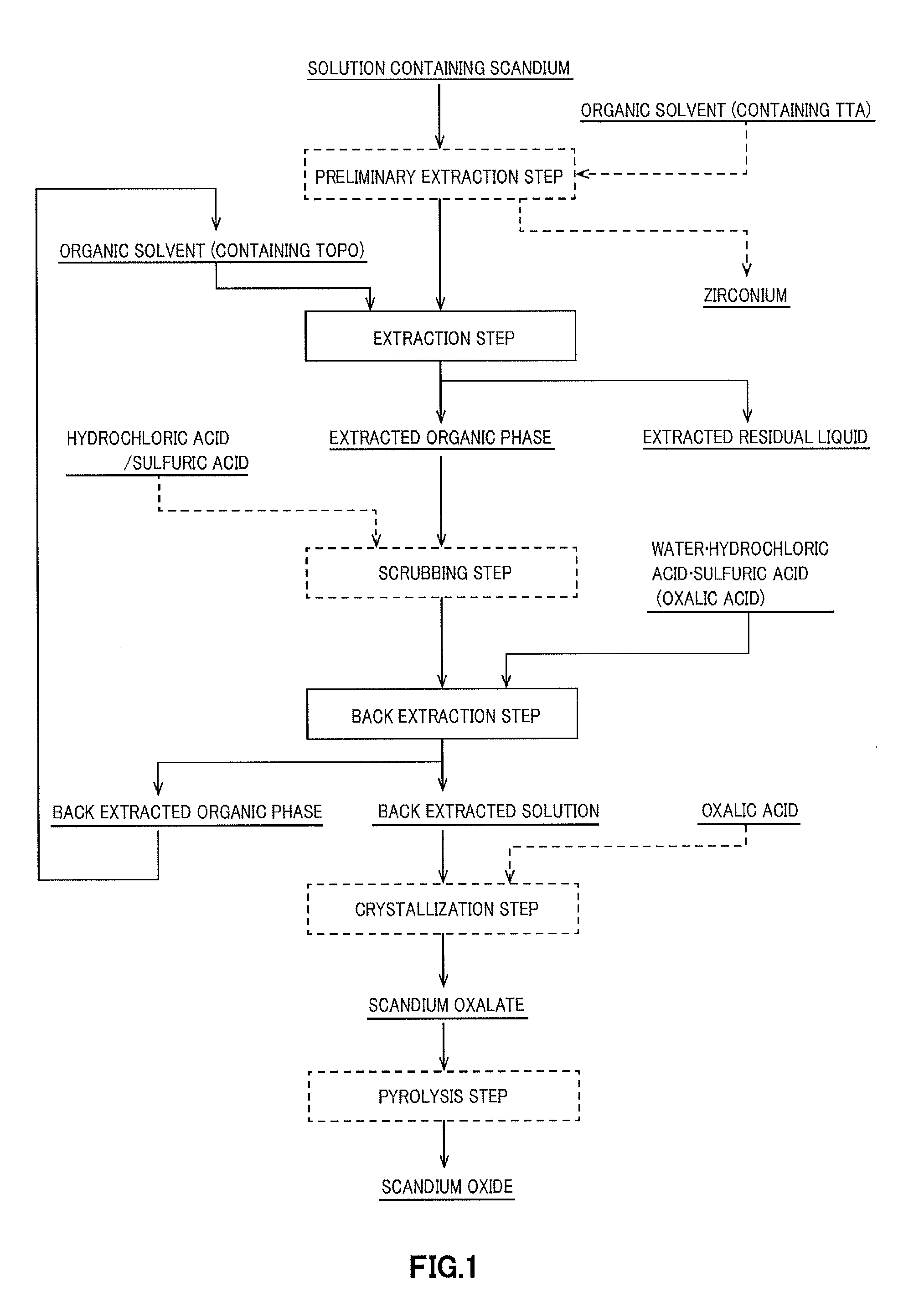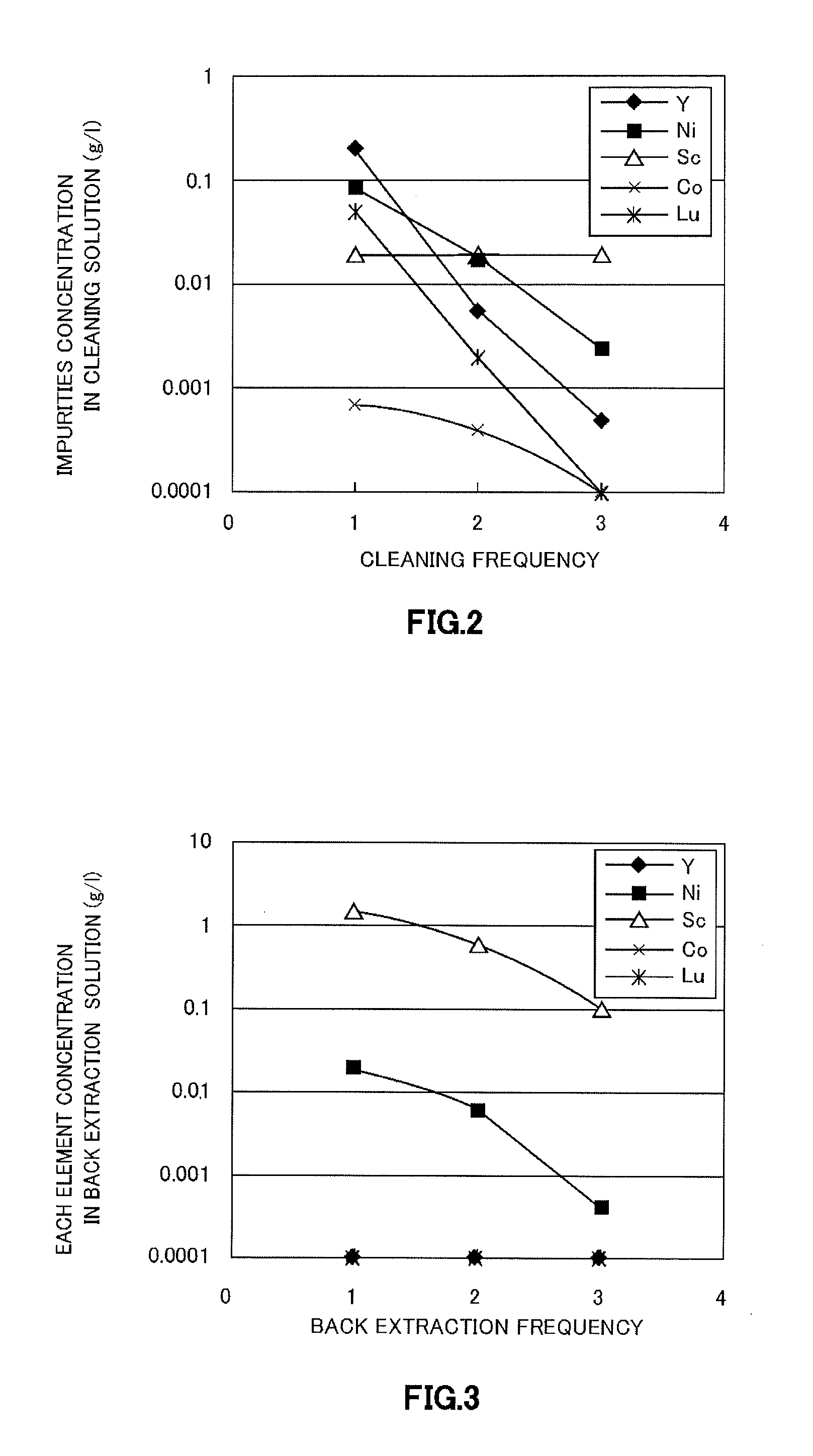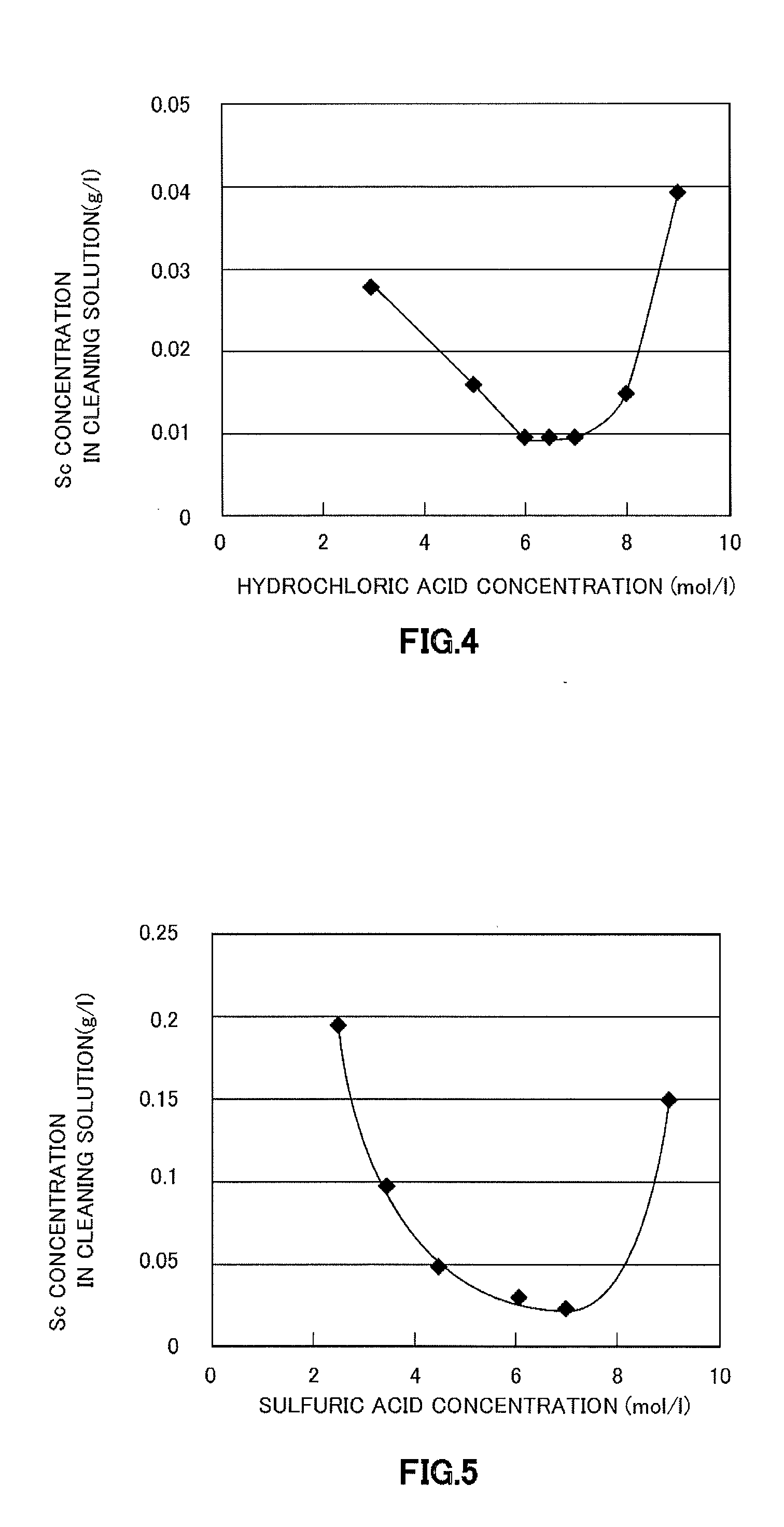Method for separating and refining scandium
a technology of scandium and alumina, which is applied in the direction of rare earth metal oxides/hydroxides, process efficiency improvement, chemistry apparatus and processes, etc., can solve the problems of impede the fluidity of an organic phase and an aqueous phase, and achieve high stripping rate, improve the yield of scandium, and improve the effect of stripping
- Summary
- Abstract
- Description
- Claims
- Application Information
AI Technical Summary
Benefits of technology
Problems solved by technology
Method used
Image
Examples
example 1
(1) Extraction Step
[0114]A solution (raw liquid) containing scandium (Sc) of 103 L composed of compositions listed in Table 1 below was mixed with an organic solvent of 2.6 L where a trioctylphosphine oxide (TOPO) (HOKKO CHEMICAL INDUSTRY CO., LTD) was dissolved at concentration of 13 v / v % into a Shellsol A solvent (made by Shell Chemicals Co., Ltd), while stirring, for 60 minutes, to produce an extracted organic phase containing the scandium. At this moment, concentration of the scandium in an extracted residual liquid was less than 0.1 mg / I, and an extraction rate was 99.8% or more.
TABLE 1ScYLuCoNi0.0550.0050.001221
(2) Scrubbing Step (Cleaning Step)
[0115]Next, the organic solvent (extracted organic phase) containing the scandium produced in the extraction step was mixed, so as to be a phase ratio of O / A=1 / 1 using a hydrochloric acid solution having concentration of 6.5 mol / l, and cleaned by stirring a mixture for 10 minutes. Thereafter, an aqueous phase was separated, an organic ...
example 2
As for Acid Concentration Dependency of Sc Extraction and Sc Stripping
[0124]A chloride solution of 100 L containing scandium of 0.11 g / l and nickel of 220 g / l was mixed with an organic solvent of 6.7 L produced by diluting TOPO by using a Shellsol A solvent into 10 vol. %, mixed while stirring for 10 minutes to extract the scandium into an organic phase. A phase ratio of O / A was a ratio of 1 / 15.
[0125]Then, the produced organic phase of 50 ml was taken out, shaken and mixed within a separatory funnel, by using a hydrochloric acid solution or a sulfuric acid solution having various concentrations so that the organic phase ran up to a phase ratio of O / A=1 / 1, and cleaned the extracted organic phase. FIGS. 4 and 5 show relationships between concentration of each acid solution and that of scandium which was eluted.
[0126]As shown in FIG. 4, in a case where the scandium was cleaned by using a hydrochloric acid solution, the scandium showed a sharp increase of an eluting loss, under the conc...
example 3
Treatment to Raw Liquid Coexisting with Zirconium (Zr)
(1) Dezirconization Step (Zr Extraction Step)
[0128]A raw material of 125 g composed of compositions containing zirconium (Zr) shown in Table 3 below was mixed with a hydrochloric acid solution of 600 ml having concentration of 11.5 mol / l, and stirred for 30 minutes to completely dissolve the raw material thereinto. Then, a hydrochloric acid solution having concentration of 11.5 mol / l and pure water were respectively added as much as 400 ml for dilution. Further, a Shellsol A solvent solution of 400 ml containing thenoyltrifluoroacetone (TTA) having concentration of 50 g / l was added, mixed while stirring for 10 minutes, and extracted and separated the zirconium in the raw material. A metal grade of elements other than those shown in Table 3 were all below a lower limit of detection by the emission spectrochemical analysis method.
TABLE 3CaMgSbZrFeSi117110214
(2) Sc Extraction Step to Cleaning Step
[0129]A hydrochloric acid solution o...
PUM
| Property | Measurement | Unit |
|---|---|---|
| concentration | aaaaa | aaaaa |
| concentration | aaaaa | aaaaa |
| concentration | aaaaa | aaaaa |
Abstract
Description
Claims
Application Information
 Login to View More
Login to View More - R&D
- Intellectual Property
- Life Sciences
- Materials
- Tech Scout
- Unparalleled Data Quality
- Higher Quality Content
- 60% Fewer Hallucinations
Browse by: Latest US Patents, China's latest patents, Technical Efficacy Thesaurus, Application Domain, Technology Topic, Popular Technical Reports.
© 2025 PatSnap. All rights reserved.Legal|Privacy policy|Modern Slavery Act Transparency Statement|Sitemap|About US| Contact US: help@patsnap.com



